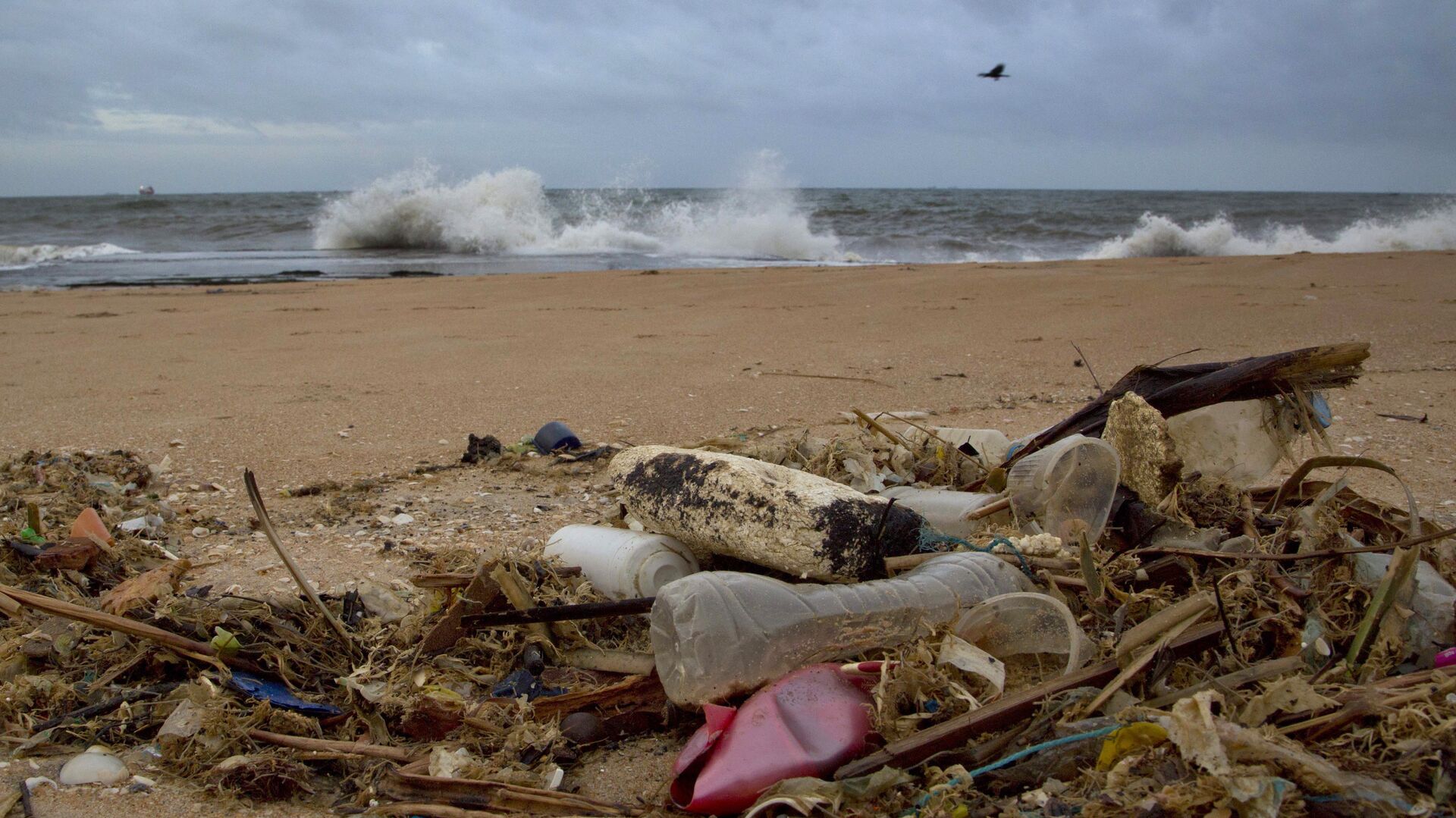California AG Announces Investigation Into Oil Industry Over ‘Plastics Crisis’
00:56 GMT 29.04.2022 (Updated: 01:00 GMT 29.04.2022)

© AP Photo / Gemunu Amarasinghe
Subscribe
The AG office says it’s already issued a subpoena looking into how Exxonmobil allegedly duped the public into believing the ‘myth’ of recyclable plastics as a group of academics argued in Science for action to address the problem now.
California Attorney General Rob Bonta announced Thursday that the state is investigating the role of the powerful fossil fuels industry in what he called the “plastics crisis”–beginning with Exxonmobil.
Calling the oil giant “a major source of global plastics pollution,” Bonta announced the state has issued a subpoena into Exxonmobil as part of an investigation into how the fossil fuel and petrochemical industries have “aggressively promoted the development of oil-based plastic products and campaigned to minimize the public’s understanding of the harmful consequences of these products.”
“For more than half a century, the plastics industry has engaged in an aggressive campaign to deceive the public, perpetuating a myth that recycling can solve the plastics crisis,” Bonta explained, referencing recently-revealed internal 1970s-era documents which warned industry executives that recycling was “infeasible” and that there was “serious doubt” that plastic recycling “can ever be made viable on an economic basis.”
The California AG said the “first-of-its-kind investigation” will “examine the fossil fuel industry’s role in creating and exacerbating the plastics pollution crisis–and what laws, if any, have been broken in the process.”
Per multiple sources including the Environmental Protection Agency, “U.S. plastic recycling rate has never broken 9%,” as Bonta’s office explained in a press release. “The remaining 91%,” the AG’s office says, “is landfilled, incinerated, or released into the environment.”
Elsewhere on Thursday, a group made up of scientists and experts from across the globe issued a letter in the journal Science arguing for tackling the plastics crisis head-on now with legislation to cap, regulate, and ultimately phase out new plastics production.
The letter’s initiator, Melanie Bergmann of the German Alfred-Wegener-Institute, argued that "even if we recycled better and tried to manage the waste as much as we can, we would still release more than 17 million tons of plastic per year into nature," and warned that "if production just keeps growing and growing, we will be faced with a truly Sisyphean task.”
"The exponentially growing production is really the root cause of the problem, and the amounts of plastics we have produced thus far have already exceeded planetary boundaries," another scientist argued. "If we don't tackle that, all other measures will fail to achieve the goal of substantially reducing the release of plastic into the environment.”
"The exponentially growing production is really the root cause of the problem, and the amounts of plastics we have produced thus far have already exceeded planetary boundaries," another scientist argued. "If we don't tackle that, all other measures will fail to achieve the goal of substantially reducing the release of plastic into the environment.”

